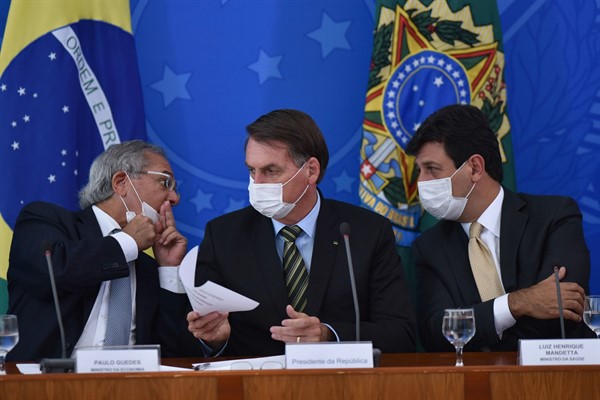Political leaders around the world have responded to the coronavirus pandemic in a wide variety of ways. Some are strictly adhering to the advice of epidemiologists, like the presidents of South Korea and Taiwan. Others are brazenly launching autocratic power grabs, in the case of Hungary’s prime minister, Viktor Orban. Still others are to trying to deny reality itself, as in Turkmenistan, where the government has banned the word “coronavirus.”
In Latin America, the responses from national leaders have ranged from buffoonish irresponsibility to stern action. The region is a good place to try to identify what it is about a government that makes it act so recklessly in the face of a looming public health crisis.
For years, Latin America has been divided between left- and right-leaning governments that, in a variety of situations, have often organized themselves behind positions that reflected old ideological playbooks. But this time, it has been different. There have been two distinct trends since the emergence of COVID-19, but they have had no connection to traditional left-right ideology. Instead, government responses have fallen in line with the style of its political leadership. Rather than a left-right divide, what has emerged is a divergence between populists and pragmatists.

